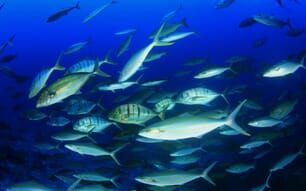Beset by continuous delays and with an aggressive campaign by the deep-sea trawling industry, the European Parliament agreed some deep-sea conservation measures, but rejected the elimination of the most destructive fishing practices.
A proposal to phase out deep-sea bottom trawling and bottom gill netting was narrowly defeated by a vote of 342 to 326. This proposal was originally put forward by the European Commission and supported by Parliament’s Environment Committee, but rejected by its Fisheries Committee.
“It is a sad day for deep-sea life,” said Matthew Gianni, policy advisor to the Deep Sea Conservation Coalition and The Pew Charitable Trusts.
“The European Parliament came close but ultimately could not find the resolve to phase out deep-sea bottom trawling, one of the most destructive fishing practices. None the less, a number of the measures agreed to by the Parliament today would, if effectively implemented, help limit the damage to deep-sea ecosystems.”
Xavier Pastor, Executive Director of Oceana Europe, also stated: “We are deeply disappointed that the phase-out of destructive fishing in deep-sea habitats was not voted through. This measure was the most important single step that could be taken to protect these fragile ecosystems from destruction.”
The proposal adopted by the Parliament includes requirements to strengthen the scientific basis for setting quotas and to reduce bycatch of deep-sea species. It also contains measures to protect vulnerable deep-sea marine ecosystems by requiring prior environmental impact assessments for deep-sea fisheries and the closure of areas to bottom fishing where such ecosystems are known or likely to occur.
A final text needs to be agreed by the Council of Fisheries Ministers, which has yet to begin formally considering the proposal.



